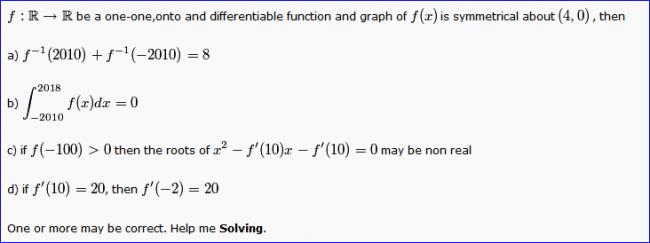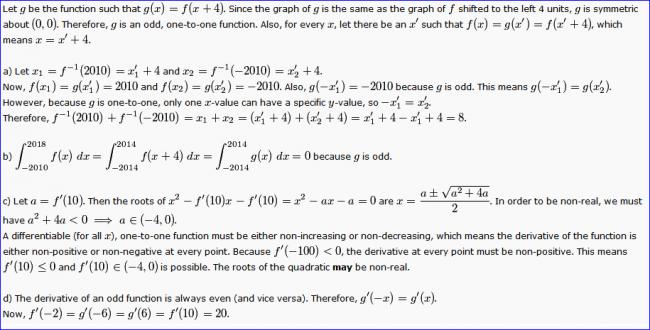by logic, i am getting a,b,d .
7 Answers
Vivek @ Born this Way
·2012-02-01 03:18:06
By logic, I got too.. But I could not solve it fully.
We have only one information about the function i.e., f(4-x)=f(4+x)
then?
Swaraj Dalmia
·2012-02-01 04:47:15
@vivek f(4-x)=-f(4+x) otherwize it will become many to one.
I am getting all a,b,c,d.
for (c)
we know f(x) passes through (4,0) and is either increasing or decreasing.
but f(-100)>0.therefore it is decreasing and f'(x)<0 always.
Now, for roots to be non real,
f'(10)2+4f'(x)<0
which may be possible as f'(10)<0.
Aditya Bhutra
·2012-02-01 23:21:23
first of all, you are slightly mistaken.
the question says that the function is symmetric about the point (4,0) and not the line x=4 .
and it should be a,b,c,d

